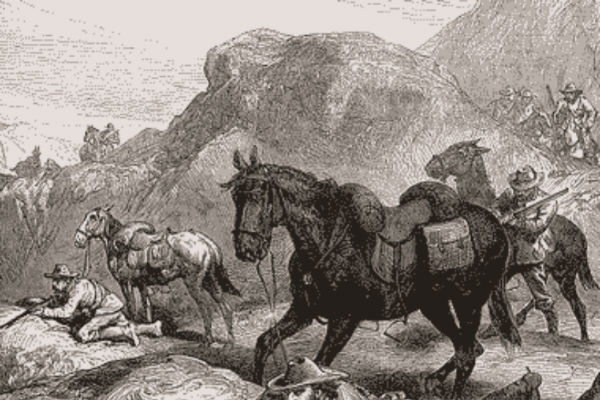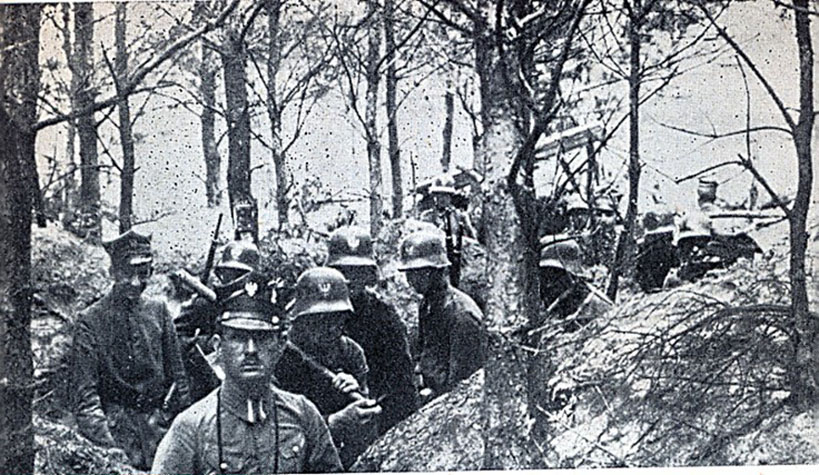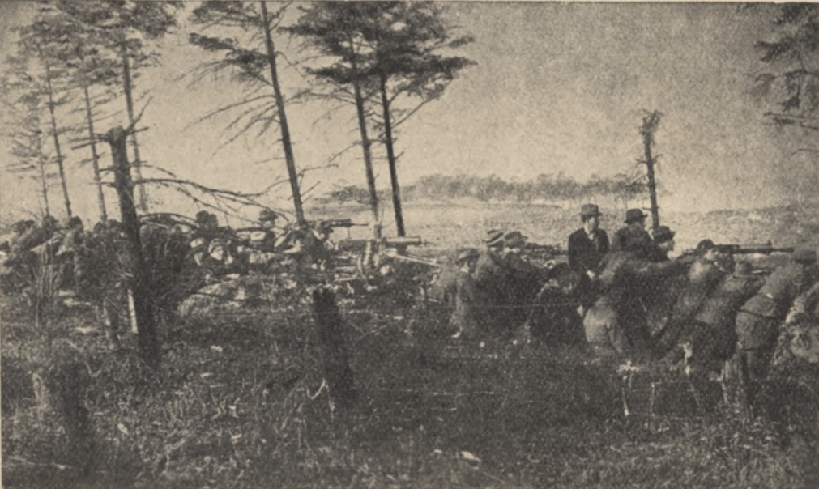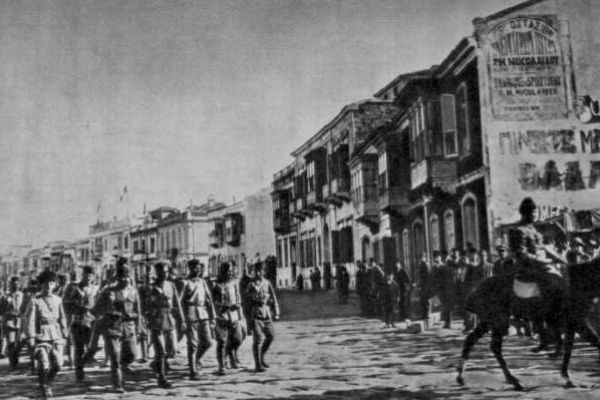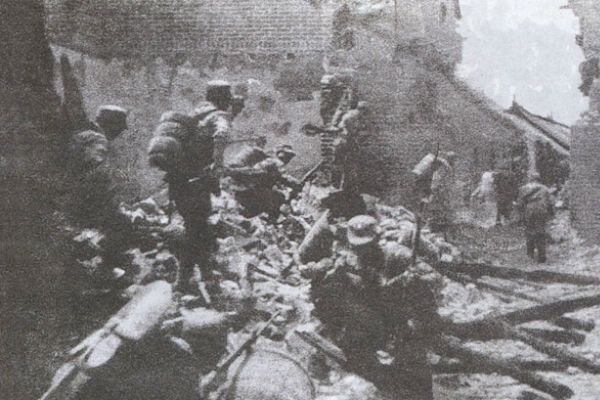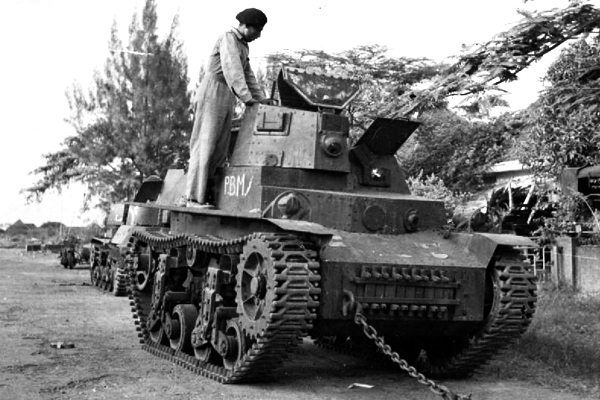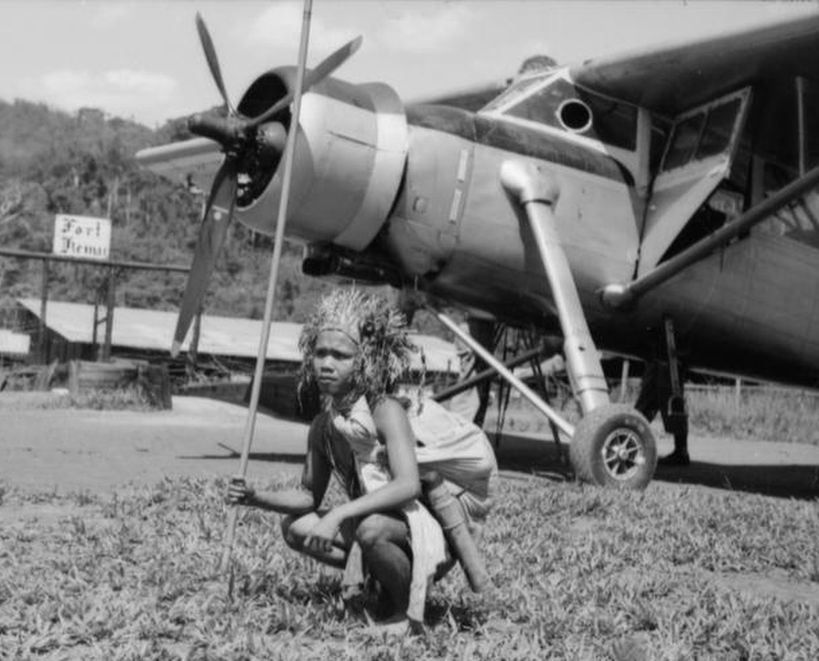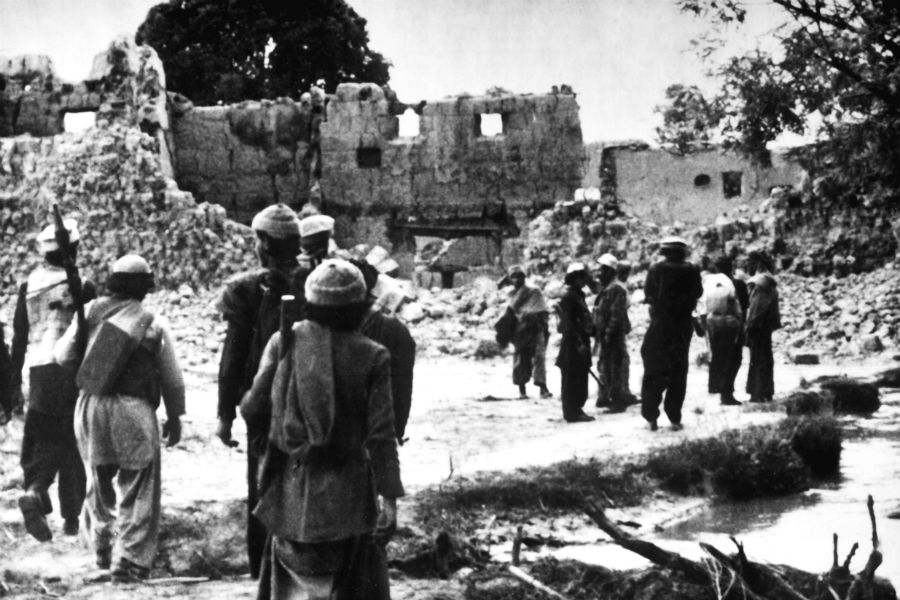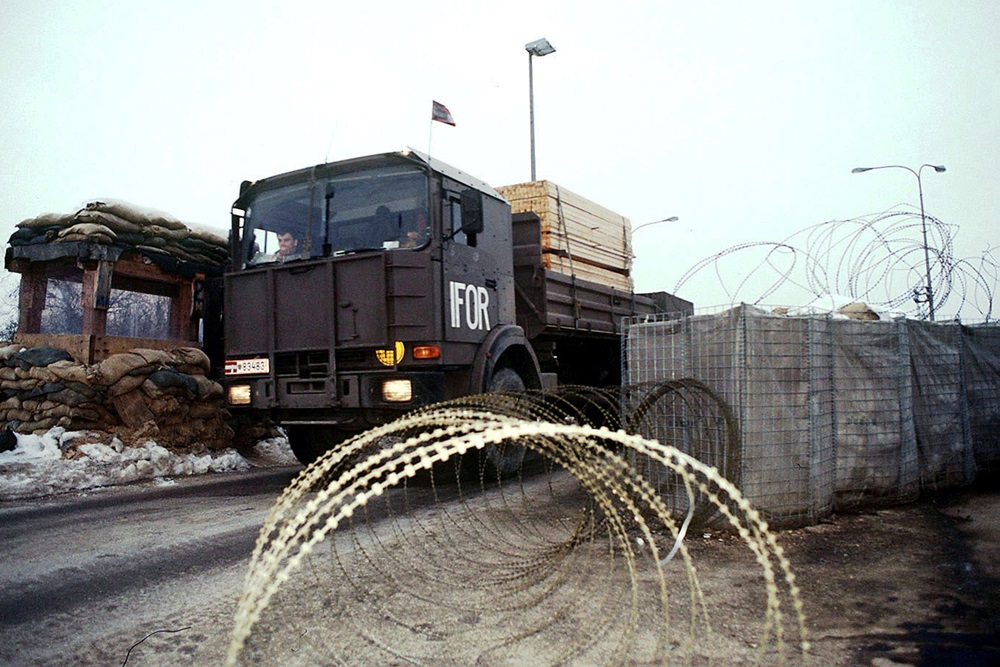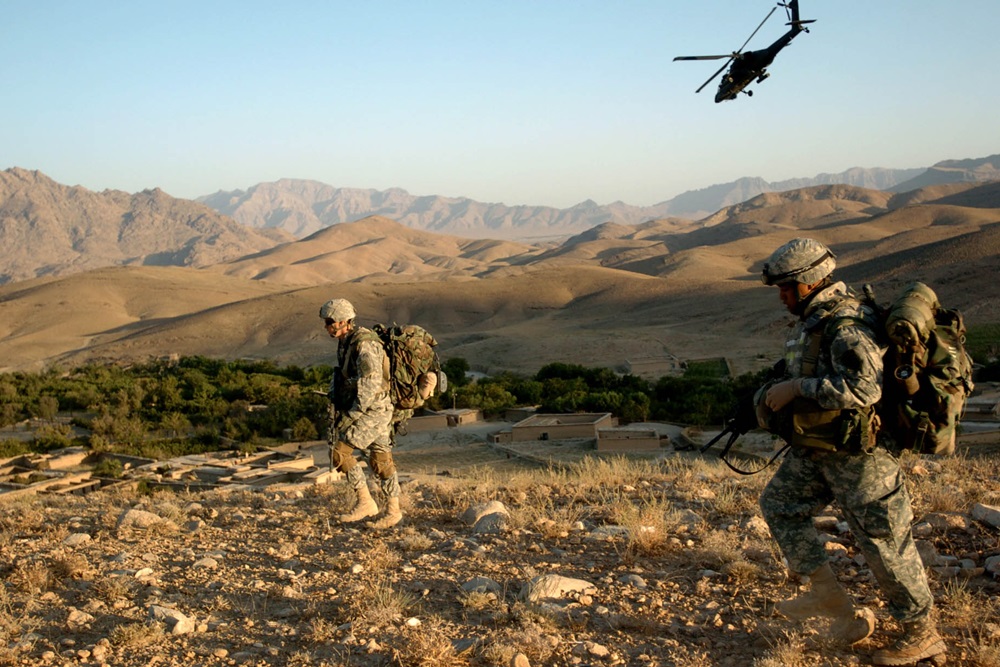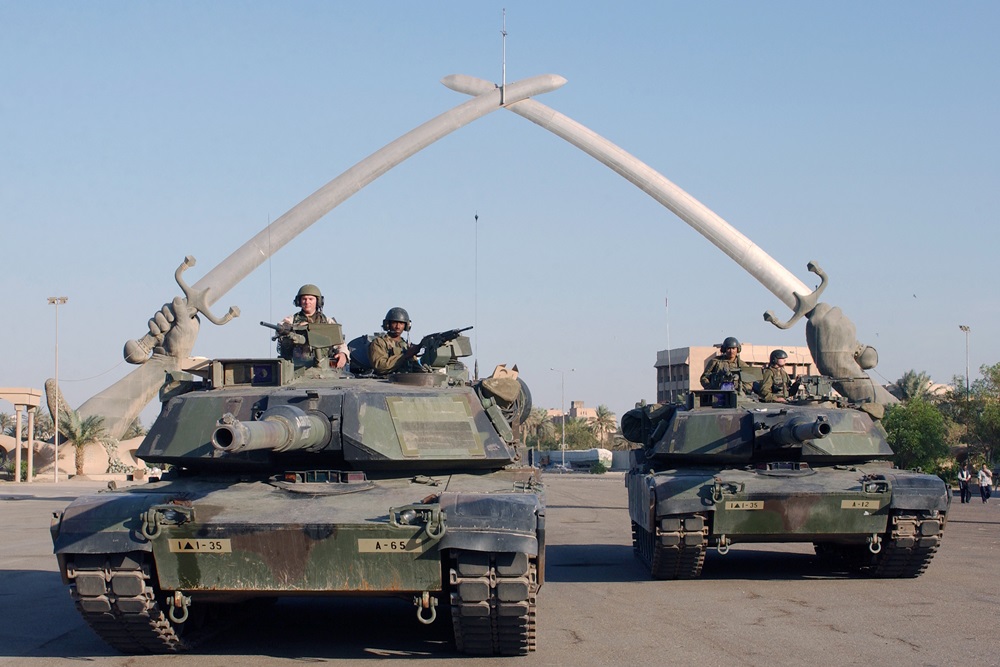-
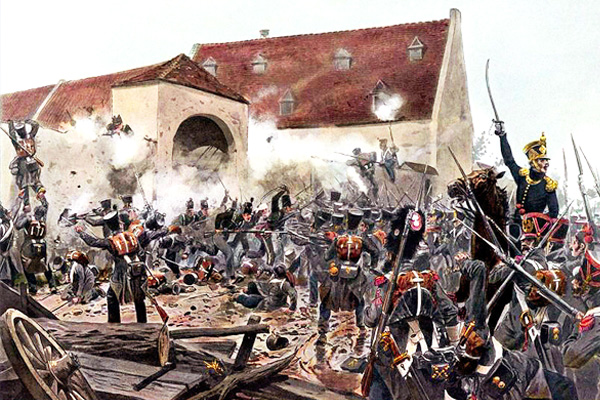
Coalition Wars (1792-1815)
The Coalition Wars are the seven wars fought between coalitions of European countries and France (of Napoleon). Between those wars, there were also wars between individual countries and France and their allies. The wars are also known as the French Revolutionary Wars (1792-1802) and the Napoleonic Wars (1803-1815). The seven Coalition Wars were: War of the First Coalition (April 1792 – October 1797) War of the Second Coalition (1799 – 1802) War of the Third Coalition (1803 – December 1805) War of the Fourth Coalition (October 1806 – July 1807) War of the Fifth Coalition (April 1809 – October 1809) War of the Sixth Coalition (March 1813 – May 1814) War of the Seventh Coalition (March 1815 – July 1815) The last war ended with the famous Battle of Waterloo. The number of military deaths, on the land and the sea, of the wars are estimated between 2.5 million and 3.5 million. The estimations of the number of civilian casualties range between 750.000 and 3 million.
Read more Show only this period -
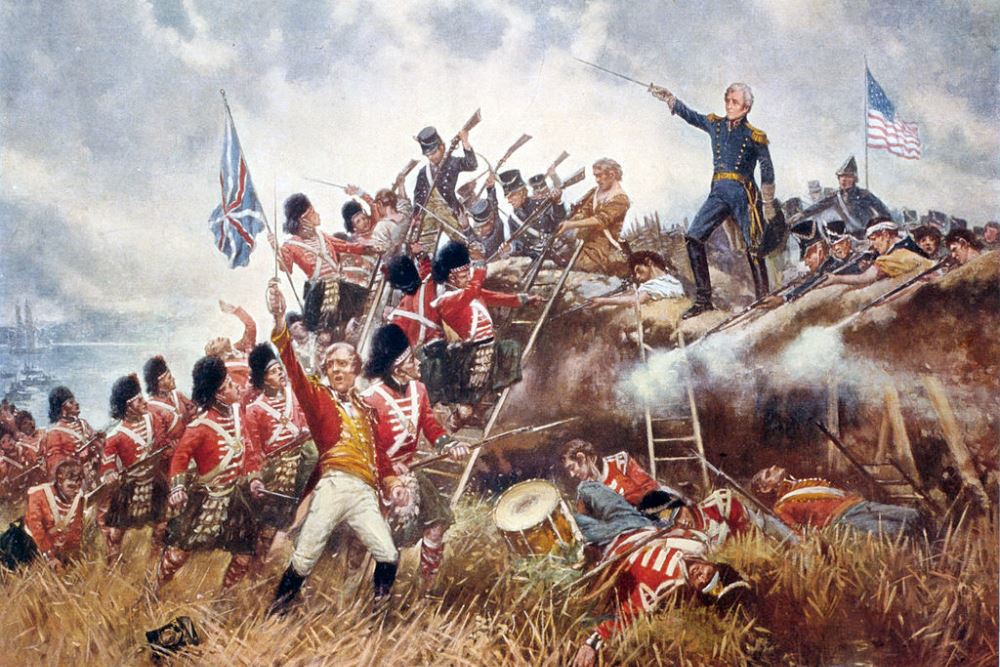
War of 1812 (1812-1815)
The War of 1812, also known as the British-American (or Anglo-American) War of 1812, took place from 18 June 1812 to 17 February 1815. Historians in Britain often see it as a minor theater of the Napoleonic Wars; historians in the United States and Canada see it as a war in its own right. The war costed the lives of about 35,000 people, including 10,000 Indians. The War ended with the Treaty of Ghent, which was signed on 24 December 1814.
Read more Show only this period -
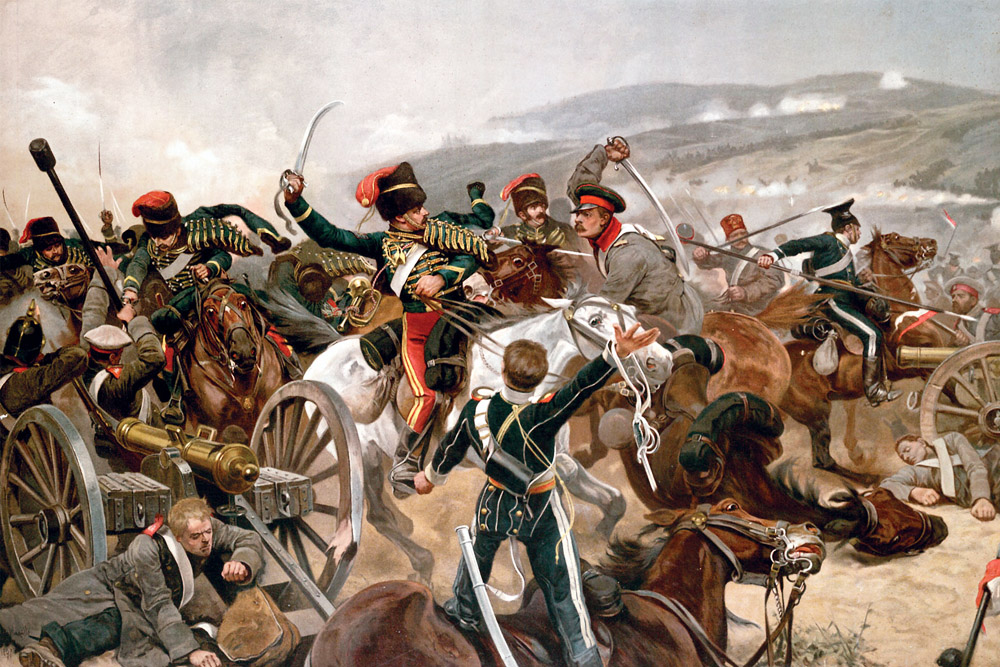
Crimean War (1853-1856)
The Crimean War was a battle between the Russian Empire and the Ottoman Empire with the support of amongst others the United Kingdom and France. From a Russian viewpoint it was aimed mainly at protecting the Orthodox Christians who were under Islamic domination. Moreover, it was an excellent opportunity to expand their territory at the expense of the Ottoman Empire. The British and the French mainly fought this battle for economic purposes. Unique for that time, was that the British media comprehensively reported about the war with photos and news items. It was the first time that so many war photographers and journalists were sent to the battlefield to report about the war, which resulted in a strong interaction between the front and those at home.
Read more Show only this period -
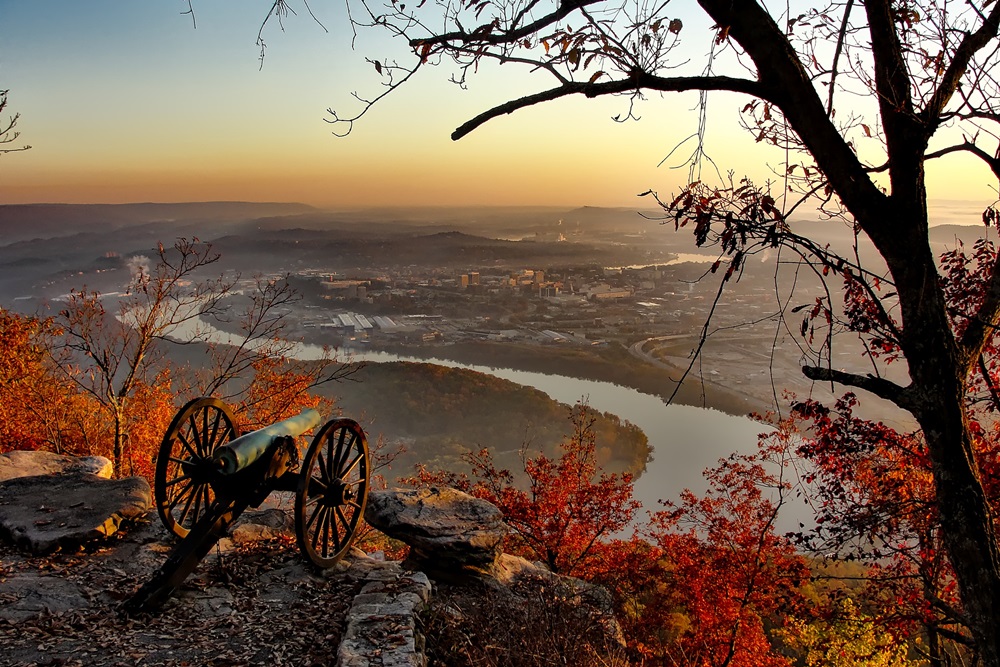
American Civil War (1861-1865)
The American Civil War, known in America as the Civil War, took place from 1861 to 1865 between the Northern Union (The United States of America) and the Southern Confederation (Confederate States of America). In the end the North won and slavery was abolished. Approx. 625,000 lives were lost and many were injured.
Read more Show only this period -
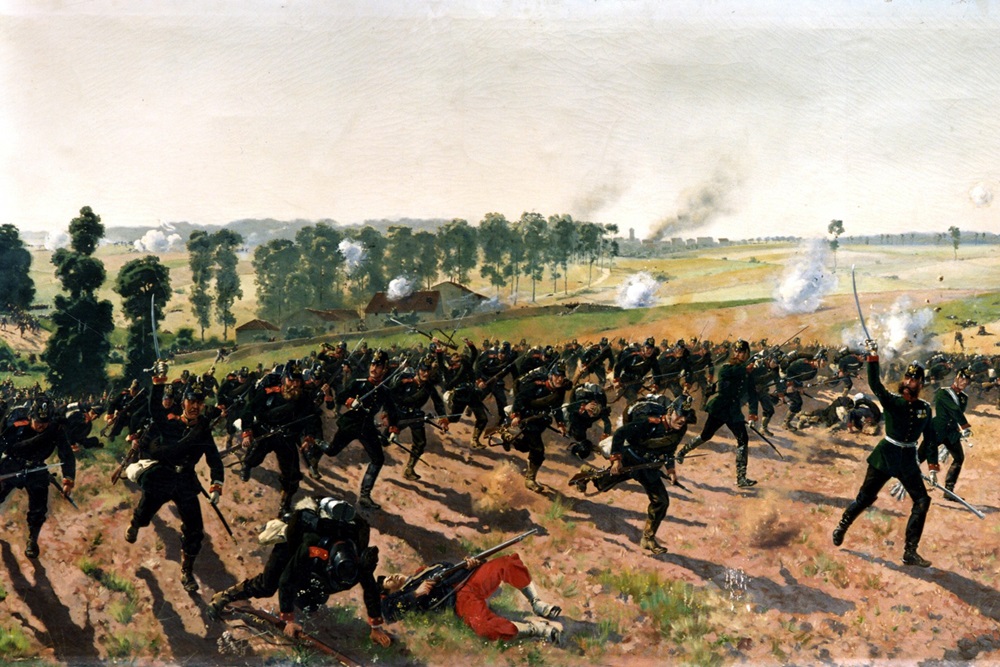
Franco-Prussian War (1870-1871)
The French-German War, also known as the Franco-Prussian War, took place from 1870 to 1871 between France and a couple of German states governed by Prussia. Prussia won and this led to the foundation of a new German Kingdom. About 180,000 soldiers died and many were injured.
Read more Show only this period -
-
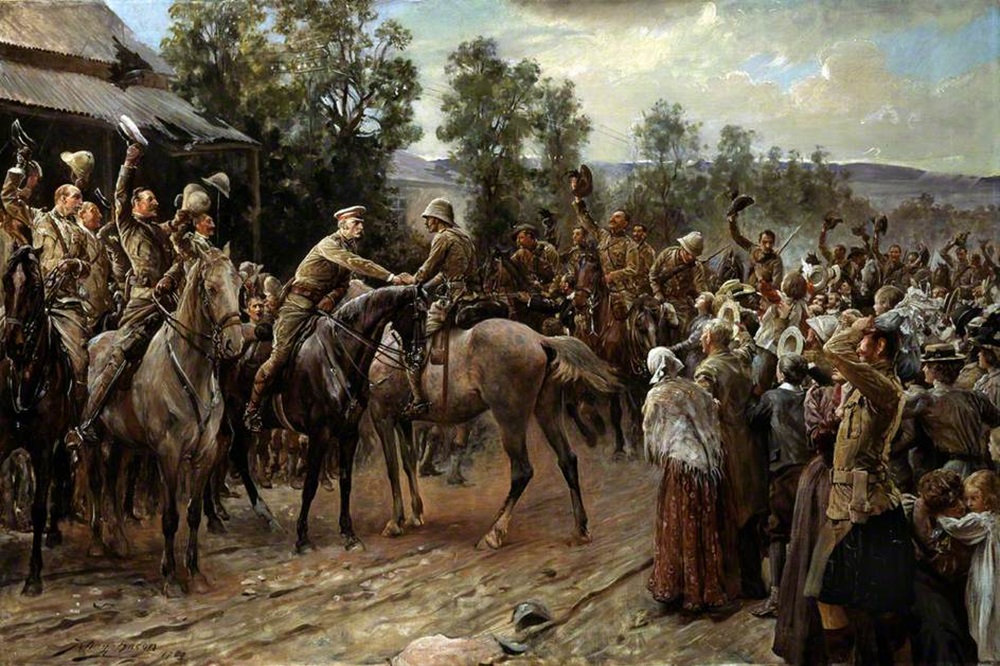
Second Boer War (1899-1902)
The Second Boer War took place between 1899 to 1902 between the South African Republic and the Orange Free State and the British Kingdom. Immediate cause of the war was the many years’ tension between the Dutch farmers and the British after the First Boer War. It ended in favour of the British Republic and the end of Transvaal as an independent state. In this war 80,000 lives were lost; mostly women and children who died in concentration camps.
Read more Show only this period -
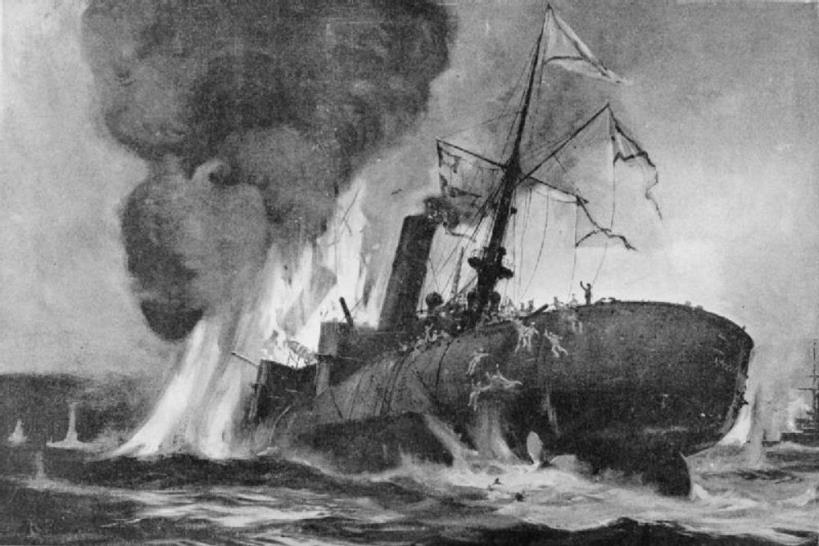
Russo-Japanese War (1904-1905)
Both Russia and Japan tried to expand their influence in the Far East, showing most intrest in Manchuria and Korea. Russia borrowed use of the harbour of Port Arthur in order to have an ice free harbour in the Pacific and expanded influence in Manchuria. When Russia resisted the Japanese request to recognise Japanese influence in Korea and refused to pull back from Manchuria, Japan attacked the harbour of Port Arthur and held back Russian troops in Manchuria who tried to reach Port Arthur. The war resulting form this ended after Japanese troops defeated Russian troops at Mukden and the Russian fleet was defeated at Tsushima. Formal ending was achieved with the Treaty of Portsmouth in which Russia had to end its expansion in the Far East and Japan gained control over Korea and most of Manchuria.
Read more Show only this period -
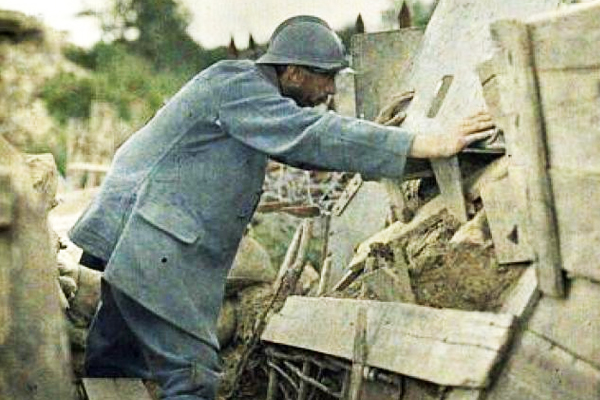
First World War (1914-1918)
The First World War, also known as the Great War, took place from 1914 to 1918. It took place on many different fronts and many lives were lost. This war is mostly known as a trench war, which took place in the Belgian and French countryside. Many soldiers died in the trenches due to cannons, poison gas and gunfire. If you have ever visited a war cemetery from the First World War, you must have noticed that many graves are dated from a later period, some even 1919. These were mostly victims of the Spanish flu, which broke out in 1918. The war ended on 11 November 1918 and was won by the Allied Powers. The Great War is still commemorated in several countries. In the United Kingdom, this 11th of November is also the national Remembrance Day for all war victims of the wars that took place after the Great War.
Read more Show only this period -
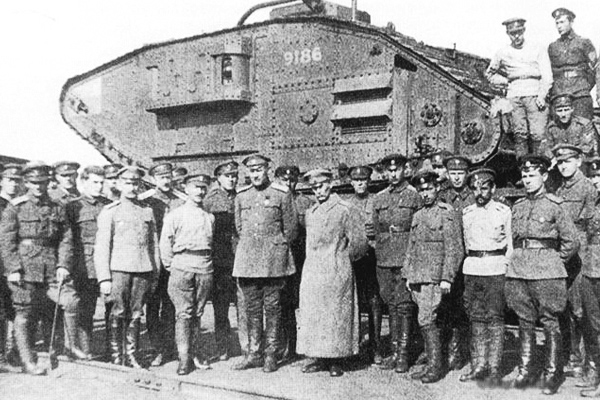
Russian Civil War (1917-1922)
The Russian revolutions in the spring of 1917 put a stop to the monarchy of the Russian Empire. The tsar was dethroned and soon after that the Bolsheviks led by Lenin took over the power. The opponents of the Bolsheviks formed the White army led by several Tsarist Generals. They were supported by several Western countries in their battle against the Bolshevik Red Army. In the beginning, the Red Army quickly lost terrain. However, the shattered White Army was severely weakened because of a lack of good cooperation within army command, which gave the Red Army the chance to turn the tide. The Red Army won the war, which in addition resulted in the independence of Finland and the Baltic states: Lithuania, Estonia and Latvia.
Read more Show only this period -
-
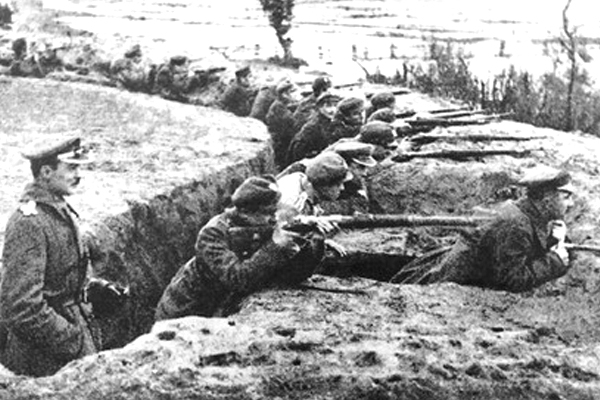
Polish-Soviet War (1919-1921)
The Polish-Soviet War took place from 1919 to 1921 between the Russian Soviet Federative Socialist Republic and the Second Polish Republic. Cause of the war was an attempt by the Second Polish Republic to expand their territory, and because the Russians wanted to use Polish territory as a transit route to other communist territories. The war ended in a cease-fire and resulted in a permanent border between both countries. In total around 200,000 people lost their lives in this war.
Read more Show only this period -
-
-
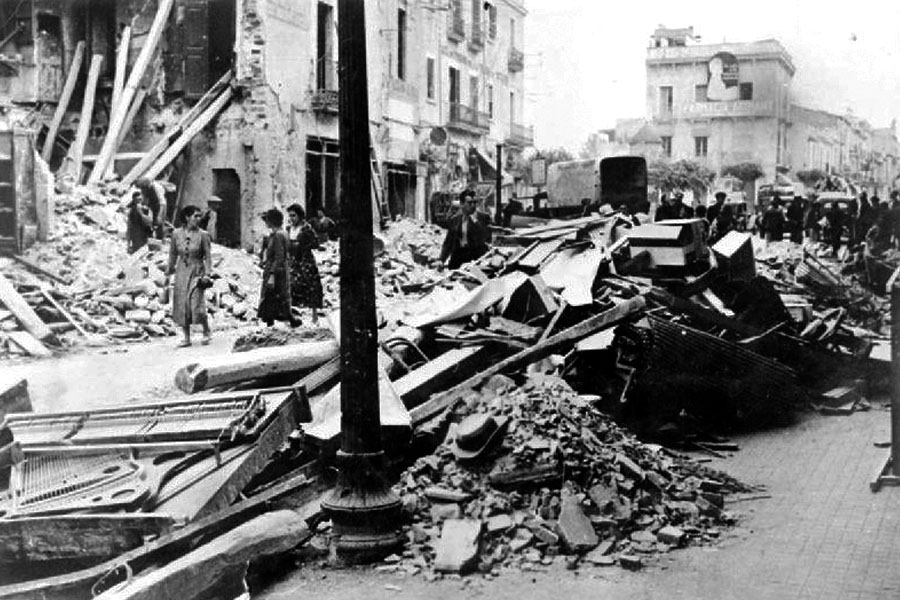
Spanish Civil War (1936-1939)
The Spanish Civil War took place from 1936 to 1939 between a nationalist fraction and the Second Republic of Spain. The right-wing nationalists staged a coup because they disagreed with the left-wing policy of the republicans. The nationalists won the war and it led to the foundation of a military dictatorship led by General Francisco Franco. Around 500,000 people were killed in this war.
Read more Show only this period -
-

Second World War (1939-1945)
The Second World War took place from 1939 to 1945 and was fought on several fronts between the Axis powers (mainly Germany and Japan) and the Allied Powers (mainly the Soviet Union, the United States of America and the British Commonwealth). This war was characterized by the huge number of civilian casualties and the gigantic scale of the theatre of war. The war ended in 1945 in the advantage of the Allied Powers. In total more than 70 million people lost their lives, including approx. 50 million civilians.
Read more Show only this period -
-
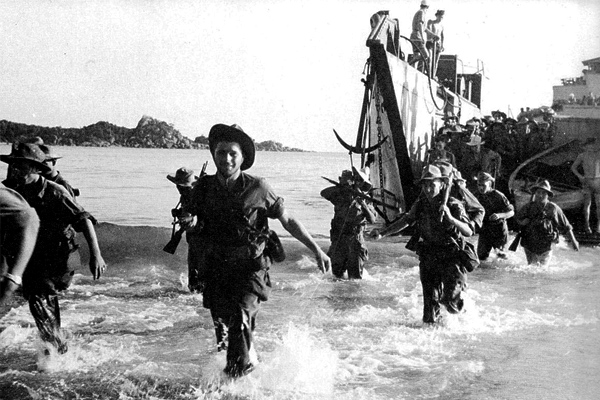
First Indochine War (1946-1954)
The First Indochina War, also known as the Vietnamese war of independence took place from 1946 to 1954 between the French Union Française and the Viet Minh. It ended by the Vietminh winning and the country being divided in North and South Vietnam. Around 400,000 people died, including 75,000 Frenchmen.
Read more Show only this period -
-
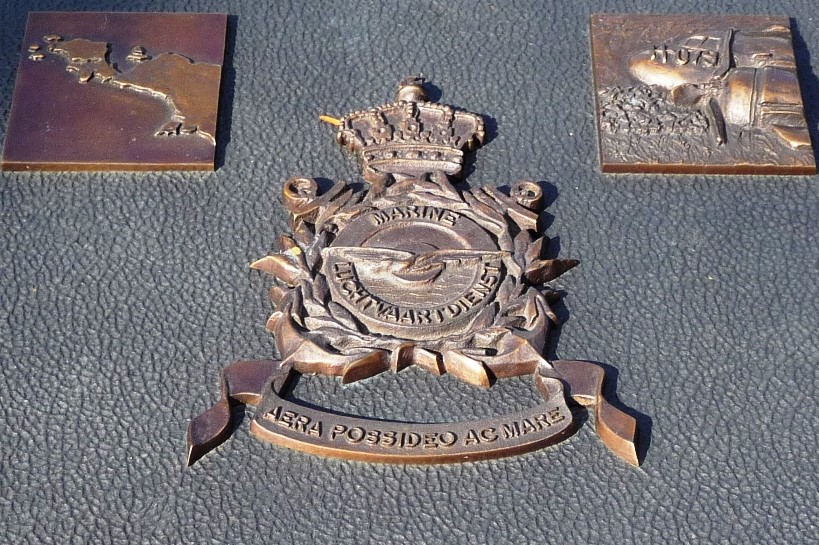
New Guinee Conflict (1949-1962)
After the independence war between Indonesia and the Netherlands, from 1945 to 1949, the western half of New Guinea remains in the hands of the Kingdom of the Netherlands. Within one year after Indonesia's independence, this part would also be transferred to Indonesia. Because the Indonesian government immediately starts to suppress minorities, and in order not to lose influence in this region, the Netherlands decides not to transfer the area. In 1954, the Netherlands received the support of the United Nations. Because of the chance of an Indonesian invasion in New Guinea, the Netherlands decides to strengthen its military presence. There were some battles because of Indonesian interventions. The Soviet Union and the United States also interfere with the conflict, and the chance of an invasion of both Indonesia and the Soviet Union increases. Bacause of the pressure the Netherlands decides to transfer New Guinea to Indonesia. This took place on 15 August 1962. Of the more than 30,000 Dutch soldiers, 103 died in the conflict. Some dozens of Indonesian servicemen were also killed in action. After the transfer, the Papua's (the original population) are heavily oppressed. Since the transfer, about 200,000 of them became victim of the oppression.
Read more Show only this period -
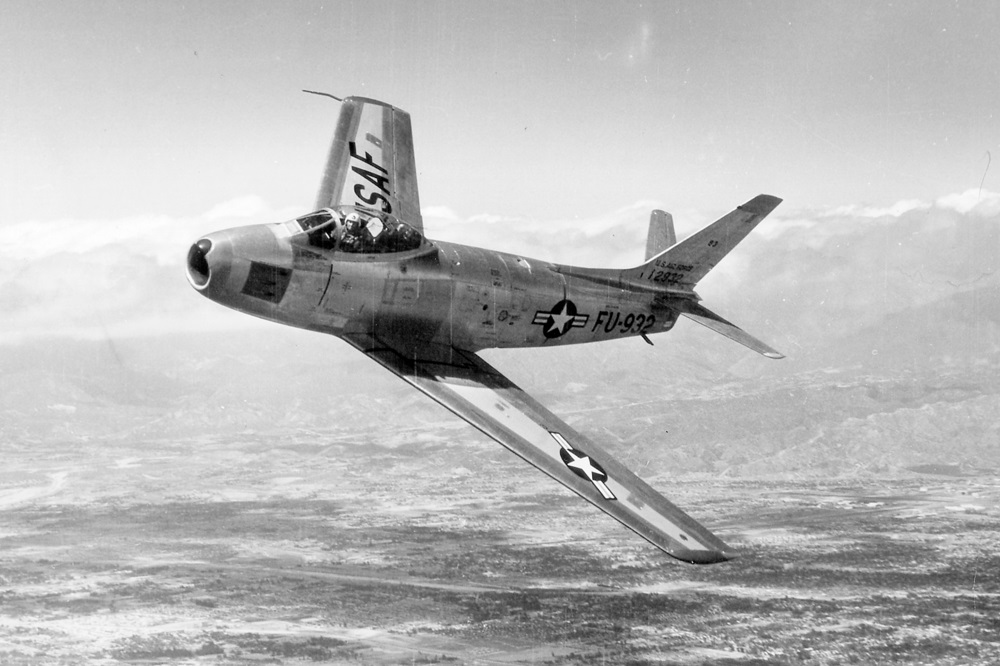
Korean War (1950-1953)
The Korean War took place from 1950 to 1953 between the communistic North Korea, supported by China and Russia, and the Western-oriented South Korea, which was supported by the United Nations (UN). The war ended with a truce between the fighting parties, but a peace treaty was never signed. Around 2 million people lost their lives during this war, including tens of thousands UN soldiers.
Read more Show only this period -
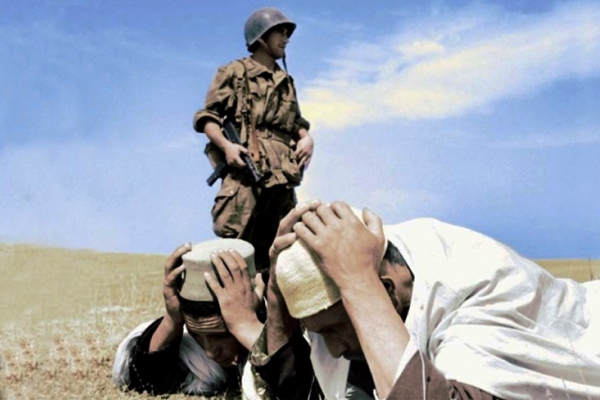
Algerian War (1954-1962)
The Algerian War, also known as the Algerian war of independence took place from 1954 to 1962 between France and the Algerian Front de Libération Nationale (FLN). The FLN won, after which Algeria was recognised by France as an independent country. About 350,000 people died, amongst which 17,500 Frenchmen.
Read more Show only this period -
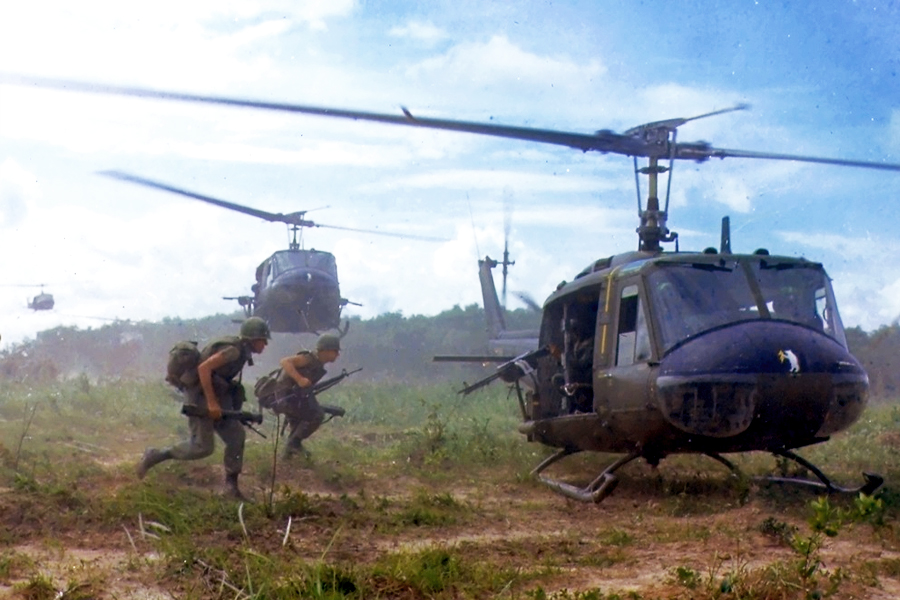
Vietnam War (1955-1975)
The Vietnam War, also known as the Second Indochina War, took place from 1955 to 1975 between the communistic North Vietnam, supported by China and Russia, and the western-oriented South Vietnam, supported by the United States of America. North Vietnam eventually won. The war would go down in the history books as the first ever war lost by the United States. More than 2 million people were killed during this war, including more than 58,000 Americans.
Read more Show only this period -
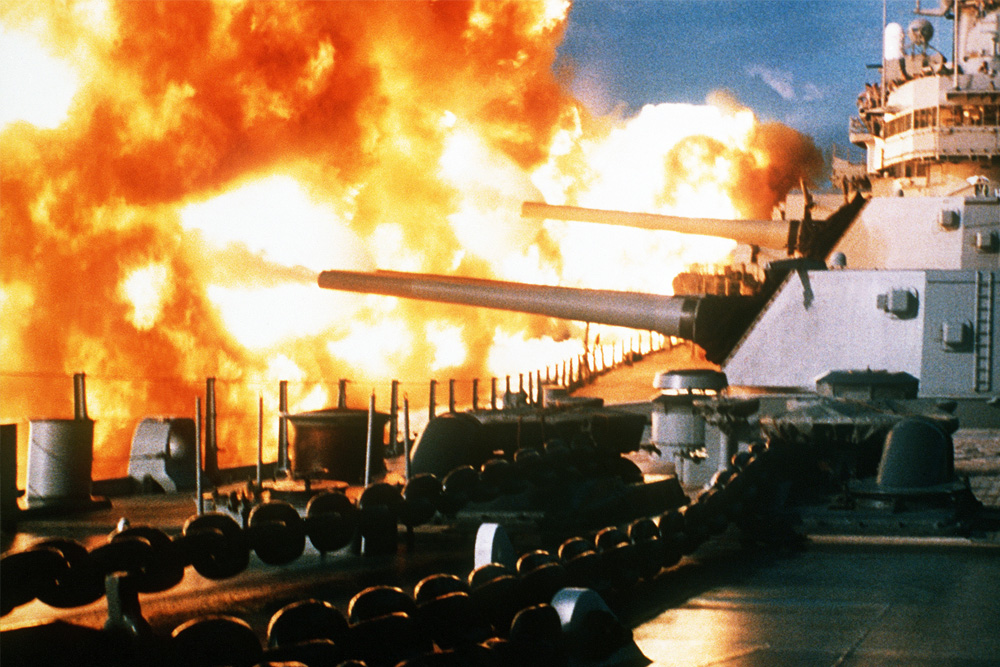
Lebanese Civil War (1975-1990)
The Lebanese Civil War started in 1975 and was a battle between the different religious groupings in Lebanon. Israel and Syria were also actively involved. As of 1978 an international peacekeeping force, UNIFIL, was stationed here, with militaries from dozens of countries, including the Netherlands. From 1982 the MNF, with militaries from the US, France, Italy and the United Kingdom were added to it, but after a couple of major bomb attacks resulting in many victims, it was discontinued in 1984. The Lebanese Civil War officially ended in 1990, but at present UNIFIL is still active in the area, deactivating mines among other activities. About 250,000 people died in the Lebanese Civil War, including hundreds of soldiers from the international military forces.
Read more Show only this period -
-
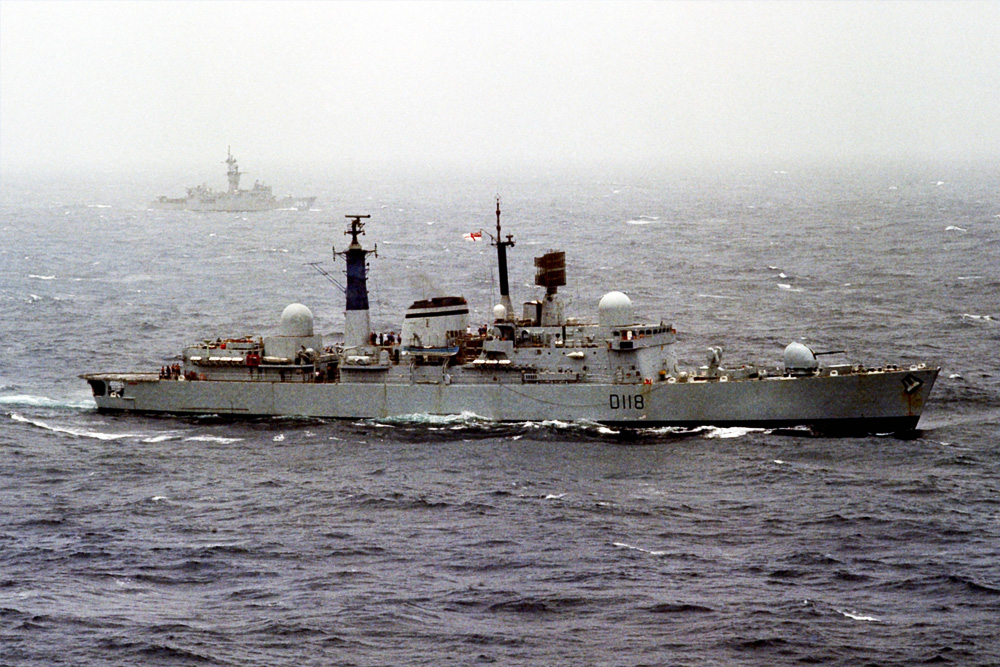
Falklands War (1982)
The Falklands War started on 2 April 1982 when Argentinian troops occupied the Falkland Islands and South Georgia. In response to this occupation, the United Kingdom sent a special task force to the Falklands to reconquer it from the Argentinians. South Georgia was reconquered without much battle, but in June 1982 heavy battle took place on the Falkland Islands. In addition many ships were attacked, resulting in many lives lost. The Falklands War ended on 20 June 1982 when the remaining Argentinian troops on the islands surrendered. 258 British died (255 British military personnel and 3 Falkland islanders) and 649 Argentine military personnel (323 of which lost their lives when the Argentinian light cruiser “ARA General Belgrano” was sunk). Argentina still claims the islands.
Read more Show only this period -
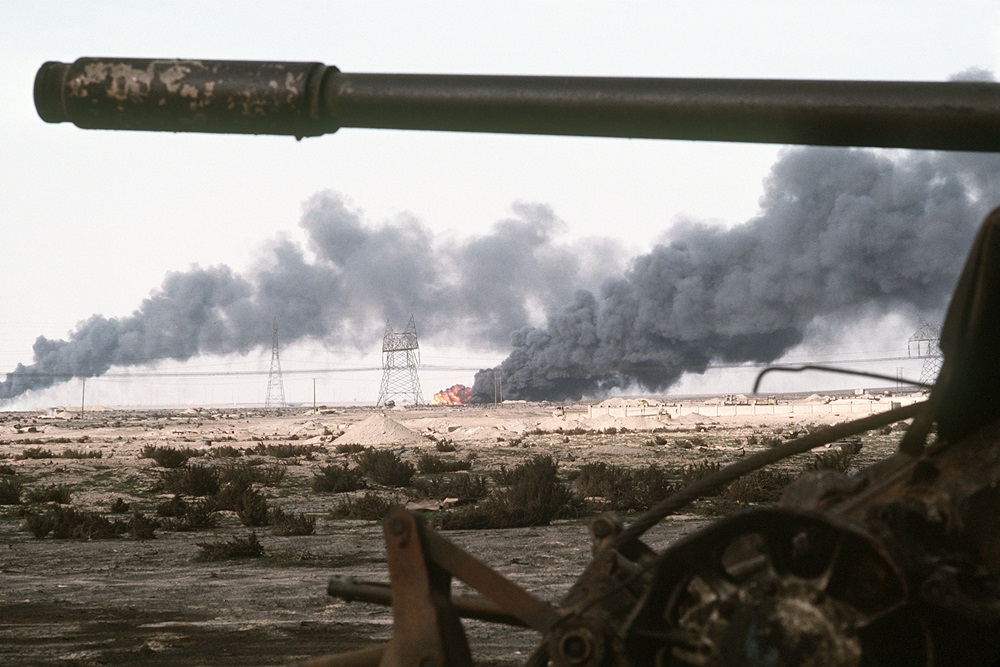
Gulf War (1990-1991)
On 2 August 1990, Iraq invaded neighbouring country Kuwait. The reason for this war was the increased tensions due to the debt of Iraq owed to Kuwait after the Iraq-Iran War. Moreover, Kuwait was accused of oil drillings on Iraq territory and of overproduction of oil, resulting in a decrease in the price of oil. The United States and coalition troops, consisting of 34 Western, African and Asian countries supported Kuwait in this war. The Netherlands and Belgium also took part. After just a couple of months, the Iraqi troops were driven away from Kuwait.
Read more Show only this period -
-
-
